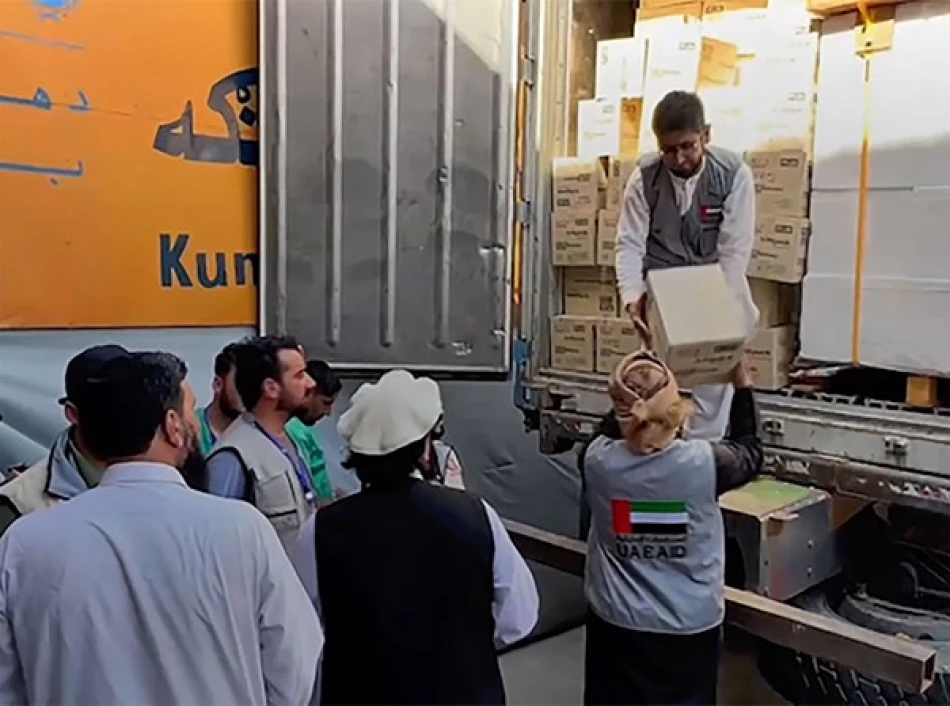
Red Crescent Delivers First Batch of Medical Aid to Afghan People
UAE Deploys Swift Medical Response to Afghanistan Earthquake, Reinforcing Regional Humanitarian Leadership
The UAE Red Crescent Authority has delivered the first wave of emergency medical aid to Afghanistan following recent devastating earthquakes, marking another strategic move in the Emirates' expanding humanitarian diplomacy across crisis-hit regions. The rapid deployment underscores the UAE's calculated approach to maintaining soft power influence while addressing urgent global crises.
Presidential Directive Triggers Immediate Response
The humanitarian mission launched under direct orders from UAE President Sheikh Mohammed bin Zayed Al Nahyan, with operational oversight from Sheikh Hamdan bin Zayed Al Nahyan, the Emirates Red Crescent Authority's chairman. This high-level involvement signals the UAE's commitment to positioning itself as a reliable partner during regional emergencies.
Joint operations teams arrived in Afghanistan on Wednesday and immediately began coordinating with local health institutions and relevant authorities to ensure efficient distribution of medical supplies. The structured approach reflects lessons learned from previous international relief operations.
Strategic Humanitarian Diplomacy in Action
This Afghanistan deployment fits within the UAE's broader humanitarian strategy that has seen the country respond to crises from Syria to Yemen, Somalia to Pakistan. The Emirates has consistently leveraged disaster relief as a tool for building international relationships and demonstrating regional leadership, particularly in areas where traditional Western aid might face political complications.
Operational Advantages in Complex Environments
The UAE's ability to rapidly deploy aid to Afghanistan highlights several competitive advantages. Unlike Western nations that may face diplomatic constraints or security concerns, the Emirates can operate more freely in politically sensitive regions. This flexibility has made the UAE an increasingly important humanitarian actor in the Middle East and South Asia.
Regional Context and Implications
Afghanistan's healthcare system remains severely strained following years of conflict and economic isolation. International sanctions and banking restrictions have complicated aid delivery from many traditional donors, creating space for regional powers like the UAE to fill critical gaps.
The timing is particularly significant as Afghanistan continues to face multiple crises simultaneously - economic collapse, food insecurity, and now natural disasters. Countries that can navigate these complex political dynamics while delivering tangible assistance gain considerable influence.
Broader Humanitarian Investment Strategy
The UAE's humanitarian spending has grown substantially over the past decade, with the country consistently ranking among the world's top aid donors relative to national income. This Afghanistan operation represents part of a calculated investment in soft power that complements the Emirates' economic and diplomatic initiatives across the region.
For Afghanistan's struggling healthcare sector, the UAE medical supplies provide immediate relief while potentially opening channels for longer-term cooperation. The Emirates' track record suggests this initial response may evolve into sustained engagement, particularly if the humanitarian situation deteriorates further.
Most Viewed News

 Layla Al Mansoori
Layla Al Mansoori






